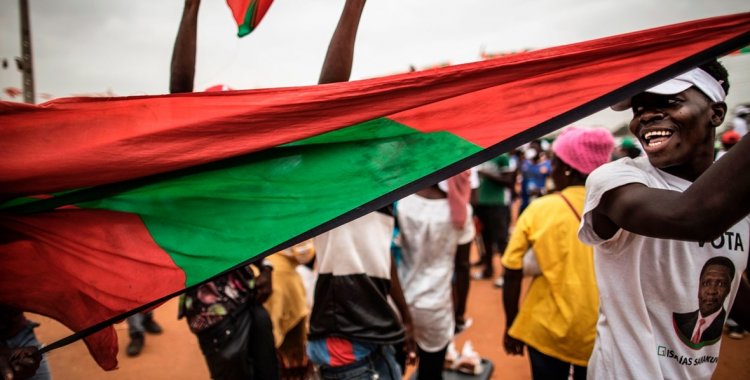"We must remember that our country is full of communities that, even before the state of emergency, suffered from hunger, lacked products from the basic food basket," noted Navita Ngolo, second vice-president of UNITA's parliamentary group, during a donation campaign in Cacuaco (Luanda).
She stressed that due to the restrictions imposed, "many people can no longer travel to the square", compromising their livelihoods, and asked for more support for the most vulnerable during the state of emergency, which was declared on 27 March and arrived this Monday at its 11th day.
"Resources are few, but we cannot allow people other than the covid-19 to die of hunger. Angola cannot afford this, it cannot let its population starve to death," she said.
In the community of houses of chapa, near the Mayé-Mayé district, which the UNITA delegation visited, almost everything is missing.
It is a poor agglomeration, in the urban district of Sequele (municipality of Cacuaco) almost an hour from the city of Luanda, with no paved road, no school, no transport, no basic infrastructure.
The biggest difficulty is in the water, complains Esperança da Cruz André, 20 years old, without letting the smile still wane.
The young woman, who carries a baby on her back, says it takes two hours to walk to get water, that there is not always money to buy.
With the quarantine imposed by the state of emergency everything got worse: "Life is difficult here, sometimes we have nothing to eat," she said. The diet varies little: "Sometimes quizaca [cassava leaves], sometimes bombó [soaked cassava].
Isaías Bendi reported the same difficulties, especially the lack of water and food, and expressed concern about the new coronavirus.
But more than in prevention, it is in God that he trusts: "We have to thank the Great One, who cares for us," not least because "the area in which we find ourselves is unfavorable for prevention.
Magdalene Simon, who received the food in the name of the community, pointed out that the help will be properly distributed, because "everyone is having a bad time".
"Here our food is only for farming [in the countryside]. It's going to take quizaca, it's going to take rama, without oil, without salt, we're really badly off," she lamented.
"We depend on the square. The other days we were going to sell, but now no one can go out, we can't go out, we're going to eat what?", she asked.
For the UNITA deputy, since many have no other source of income "it is necessary to blow the whistle of solidarity", arguing that everyone, from churches and businessmen to political parties should mobilize and join the efforts of the executive.
"We all have to unite so that we can mitigate some needs", said Navita Ngolo, considering" the lack of water, taking into account that this is one of the most basic preventive measures against covid-19.
Flour, rice, oil and soap, "which is important for protective care", are some of the products that this Monday arrived in that isolated community, alleviating hunger for a few days.
The country has so far registered 16 cases of infection with the new coronavirus, two of which have resulted in death and two have already recovered.







